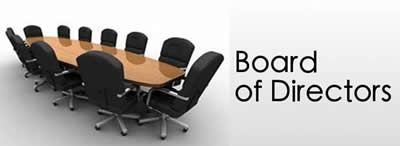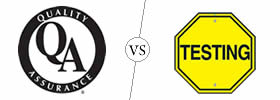Difference between Board of Directors and Management
Key Difference: The board of directors is directly hired by the stockholders. The chairman is the head of the board of directors, which includes inside directors and outside directors. It is the board of directors’ job to head the company and ensure that the company is headed in the right department. The board of directors is also responsible for hiring the upper management, and for overseeing the organization and its management. The upper management usually involves the CEO, COO, CFO, and the CIO.
 It is not easy to run a company. It is even harder to run a multi-million dollar corporation. Hence, in order to help run a corporation efficiently and to ensure the company’s profitability, most companies’ set up a two-tier corporate hierarchy. The two tiers of this corporate hierarchy include the Board of Directors as one and upper management as the other. However, what are their actual jobs and responsibilities, and more importantly who answers to whom.
It is not easy to run a company. It is even harder to run a multi-million dollar corporation. Hence, in order to help run a corporation efficiently and to ensure the company’s profitability, most companies’ set up a two-tier corporate hierarchy. The two tiers of this corporate hierarchy include the Board of Directors as one and upper management as the other. However, what are their actual jobs and responsibilities, and more importantly who answers to whom.
The board of directors is directly hired by the stockholders. The chairman is the head of the board of directors, which includes inside directors and outside directors. The inside directors are the directors that have been hired from the inside of the company, whereas the outside directors are directors that have been brought on from the outside, i.e. other companies. The inside directors have an advantage as they are more intimately familiar with the company, how it works, its departments, and its people. The outside directors instead focus on keeping the company commercially viable and market competitive, as well as providing unbiased and impartial opinions for the matters at hand.
It is the board of directors’ job to head the company and ensure that the company is headed in the right department. It is its job to protect investors' interests, such as the company's profitability and stability. The board of directors is also responsible for hiring the upper management, and for overseeing the organization and its management.
 The board is basically responsible for the company, but it delegates the day-to-day organization and tasks of the company to the management. The upper management usually involves the CEO, COO, CFO, and the CIO. The CEO may or may not also serve as a board of director, or the chairman itself. However, the CEO and Chairman are often separate so as to keep clear lines of authority.
The board is basically responsible for the company, but it delegates the day-to-day organization and tasks of the company to the management. The upper management usually involves the CEO, COO, CFO, and the CIO. The CEO may or may not also serve as a board of director, or the chairman itself. However, the CEO and Chairman are often separate so as to keep clear lines of authority.
The board of directors is not directly involved in day to day activities of the company and its employees. Instead, it sets the company’s goals, targets, and responsibilities. It then delegates the day to day activities to the upper management. It is the upper management’s responsibility to ensure that the goals, targets, and responsibilities of the company are met.
Still, both tiers of corporate hierarchy are important for the advancement of the company. Each of the two tiers must do their job to ensure that the company is a success.
Comparison between Board of Directors and Management:
|
|
Board of Directors |
Management |
|
Description |
Are the first-tier of corporate hierarchy |
Are the second-tier of corporate hierarchy |
|
Includes |
|
|
|
Responsibility |
|
|
|
Hiring |
Hired by the stockholders |
Hired by the board of directors |
|
Decision making |
Required to make decisions that will affect the future of the company |
Must implement the decision made by the board of directors. |
|
Accountability |
Are accountable to the shareholders |
Are accountable to the board of directors |
|
Company Administration |
Responsible for the company’s administration |
Related duties associated with the company’s administration can be delegated to management, but this does not relieve the directors of their ultimate responsibility. |
|
Ethics and values |
Directors have a key role in the determination of the values and ethical position of the company. |
Managers must enact the ethos, taking their direction from the board. |
|
Legal Responsibility |
May be held responsible for the company’s actions. Can be held personally liable if they are in breach of their duties or act improperly. |
No legal responsibility |
Image Courtesy: jagsongroup.in, managingamericans.com









Add new comment